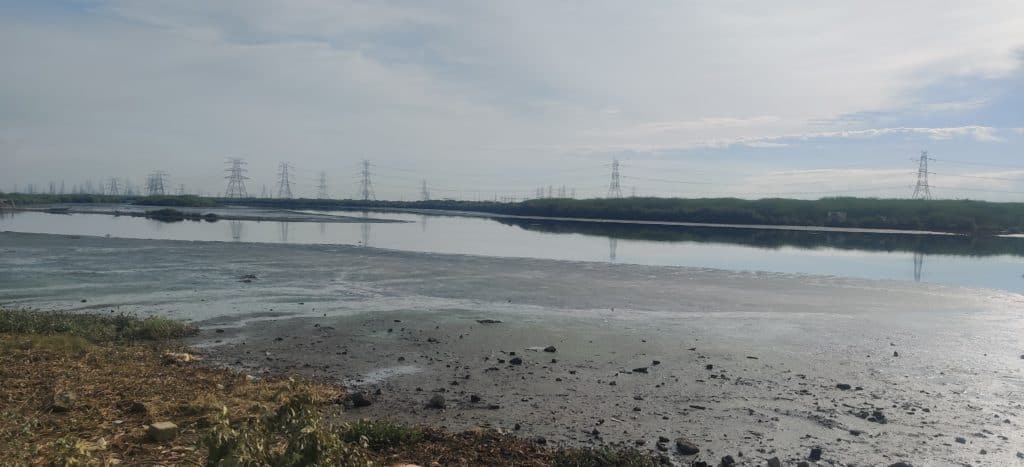Mr G R Alfred Rupak, correspondent of St. Antony’s Matriculation Higher Secondary School, Thiruvottiyur says it started on July 5th, when a pungent odour akin to LPG gas permeated the air, forcing students to exit their classrooms.
The malodour also affected other residents of Thiruvottiyur and Manali, with many reporting breathlessness and eye irritation. The stench, they feared, was a sulphur dioxide leak from the Chennai Petroleum Corporation Limited (CPCL) which operates a refinery in Manali.
TNPCB addresses gas leak in North Chennai
The Tamil Nadu Pollution Control Board (TNPCB) issued orders at once for CPCL to monitor ambient air quality; a 24-hour survey conducted to identify the gas reportedly showed traces of Total Petrochemical Hydrocarbons (TPH), a broad section of multiple chemical compounds that originate from crude oil.
The TNPCB then held a meeting with the petrochemical companies in Manali, instructing them to undertake a Leak Detection and Repair study on their pipelines. The Environment Minister Mr. V. Siva Meyyanathan announced that he would ask TNPCB to double down on testing to detect the source of the smell, underlining that action would be taken if any company was found to be in error.
The TNPCB’s new chief Ms. M. Jayanthi also announced that she would conduct an inspection of the areas to ensure that the situation would continue to be monitored. The State government rallied quickly as well, forming a special committee to identify the odour; the panel comprises experts from ISRO, IIT Madras, Central Pollution Control Board and Alagappa College of Technology.
Read more: Chennai air quality: City sees 94% spike in NO2 pollution
Inertia of TNPCB on environmental issues
While the response has been quick enough, the fact is that such incidents are not new to the Ennore-Manali region in North Chennai. In fact, a joint chief environmental engineer of the TNPCB revealed that this particular gas leak scare follows close on the heels of a confirmed sulphur dioxide leak from CPCL.
It is notable too that the current incident coincides with a mass fish kill in Ennore and Katupalli – ground reports say that an Ennore fisher suspects it to be the outcome of a chemical leak. Lest we forget, it was around the same time last year that news broke of severe fly ash contamination in Ennore creek, which left the very prawns in the water ash-coloured.
As environmentalist Nityanand Jayaraman pointed out to the media, a report by the Chennai Climate Action Group based on 2019 and 2020 TNPCB data shows that “Ennore-Manali industries either do not monitor and report emissions as required by law or emit pollutants far in excess of permissible levels.” All of this begs the question of why the TNPCB appears to limit itself to inspection and damage control rather than preventive, punitive regulation.
The TNPCB’s inertia in taking prosecutory steps – not only in Manali but in other parts of the city as well – has arguably diminished its role to that of a mere supervisor. The board’s apparent passivity drew the attention of the Madras High Court too earlier this April when the Chief Justice urged the body to show no lenience to polluters private or civic.
Read more: Ennore backwaters an “environmental crime scene” as fly ash dumping and encroachment continue
Gaps in TNPCB
However, there seem to be glaring lacunae in the empowerment of the body to take legal action against offenders. For instance, it was reported that a recent RTI application regarding the lack of action against a city hospital that dumped medical waste on Poonamallee High Road was given the response that per the Biomedical Waste (handling and management) Rules 2016, the TNPCB could only inspect and submit a report; only the local body, it was explained, could impose a penalty of 1 lakh or five years of jail term for illegal dumping of biomedical waste.
It doesn’t help either that the TNPCB is said to suffer from a dearth of human resources, as well. Given that environmental pollution has mutated into a complex crisis, the city would be better served by focused teams to combat air, water and industrial pollution – a move that may be untenable given the lack of manpower.
For an organisation that serves an increasingly important role in shaping the future of the city, the TNPCB in its current avatar is inadequate to tackle the scale of pollution inflicted on our environment. Citizens are no longer satisfied with after-the-fact responses and damage control; the need of the hour is zero-tolerance prevention and the enforcement of environmental norms on a war footing.
It is plain to see that the TNPCB urgently requires re-organisation and greater resources to fulfil its role. It would serve the administration well to take a serious view of the status quo and plug gaps that are currently rendering the board toothless.
[This story was first published on Madras Musings. It has been republished with permission. The original article can be found here.]
